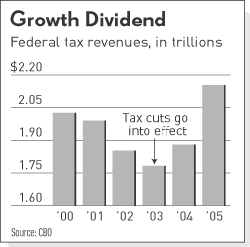 Chan Lowe, The South Florida Sun Sentine
Chan Lowe, The South Florida Sun Sentine
Tuesday, May 30, 2006
Monday, May 29, 2006
Maui Sunset
Tuesday, May 23, 2006
Capitalist of the week: Dan Brown
 Dan Brown, author of The Da Vinci Code is Capitalist of the Week.
Dan Brown, author of The Da Vinci Code is Capitalist of the Week.Born June 22, 1964 in Exeter, New Hampshire, Brown attended Amherst college. After graduation he dabbled in music and teaching before becoming a full-time writer in 1996. He had mediocre success with his first three novels, selling fewer than 10,000 copies in each of their first printings, but The Da Vinci Code, his fourth, went to the top of the New York Times Best Seller List during its first week in 2003 and has now sold well over 60 million copies.
In 2005 Forbes magazine estimated Brown's annual income to be about $76.5 million and his income from The Da Vinci Code to be $250 million. Brown sold the film rights for another $6 million.
Nicely done, Dan.
Saturday, May 20, 2006
Lower taxes? It'll never work!

Critics of the Bush Administration's 2001 and 2003 tax cuts said they wouldn't work. They wouldn't help pull the U.S. economy out of recession, they wouldn't generate more tax revenue, they were no more than a payoff to Bush's wealthy supporters.
Perhaps they were mistaken.
Treasury Secretary John Snow, in a speech to the Bond Market Association Friday, said: "The results are in, and they are clear: Economic growth has led to a surge of tax revenues and shrinking deficits. Despite the cries from our critics, it cannot be denied that low taxes truly are consistent with rising federal revenues, which of course help bring the deficit down."Hmmm. When you remove confiscatory taxes that are disincentives to investment and wealth creation, lo and behold, Americans invest in themselves and in U.S. business. They create more jobs, more higher paying jobs, higher corporate profits, a stronger economy and, in the long run, higher tax revenues.
It's not rocket science. It's capitalism.
The week in review
- DJIA lost 236.93 for the week, 2.08% to finish at 11,144.06. Ouch!. But just for some perspective, we finished 2005 at 10,717.50, so we're still up 4% year-to-date.
- Nasdaq Composite shed 49.90, not as bad as last week. It finished at 2193.88, down 2.22%. The Nasdaq finished 2005 at 2205, so it's showing a 0.5% loss for the year.
- S&P 500 dropped 24.21, 1.87% and finished the week at 1267.03. It closed 2005 at 1248, so it's still 1.5% on the positive side.
- 10-year Treasury yield fell 0.130 to finish at 5.062%.
- Crude oil dropped a whopping $3.51 to finish the week below $70 at $68.53. So that means gasoline should be dropping 20-30 cents/gallon, right?
Burger King priced its initial public offering on Wednesday at $17. It wasn't the best time to begin public trading but BKC fared pretty well.
The jury began deliberations this week in the Enron trial, no verdict yet. Heck, the trials only been going on 56 days.
Wednesday, May 17, 2006
Investment quiz
Tuesday, May 16, 2006
Sunday, May 14, 2006
Capitalists of the week: Herbert and Marion Sandler
 In 1963 Herbert and Marion Sandler bought a California thrift for $3.8 million called Golden West Financial. They nurtured it for 43 years and this week the Oakland-based company agreed to sell itself to Wachovia Bank in a $25 billion cash and stock deal.
In 1963 Herbert and Marion Sandler bought a California thrift for $3.8 million called Golden West Financial. They nurtured it for 43 years and this week the Oakland-based company agreed to sell itself to Wachovia Bank in a $25 billion cash and stock deal.Herbert and Marion Sandler are this week's Capitalists of the Week, hands down.
Marion, 75, and Herbert, 74, share the title of co-chief executive at Golden West. Both said they believe they made the right decision to relinquish their ownership and control of Golden West.Congratulations, Herbert and Marion!
"We feel good about Wachovia," Marion Sandler said. "They are a good company. It is an amazing cultural fit. They are employee-oriented. Their benefits package is even better than ours. They understand customer service. They are very philanthropic and community-oriented."
Saturday, May 13, 2006
Only in Kalifornia
 There was a time when a high school diploma indicated some level of proficiency in the three 'r's. Not anymore, at least not in California.
There was a time when a high school diploma indicated some level of proficiency in the three 'r's. Not anymore, at least not in California.On Friday, Alameda County Superior Court Judge Robert Freedman ruled that the state cannot carry out its plan to withhold diplomas from high school seniors who have not passed the state's exit exam which tests English, math and algebra skills.
State schools Superintendent Jack O'Connell said he was "greatly disappointed" and will appeal the ruling next week.Once upon a time a high school diploma actually meant something. Now it doesn't even mean that you can read and write.
"Not only is the ruling a great personal disappointment for me, it's bad news for California students who've worked hard to pass the exit exam, bad news for employers who want meaning restored to our high school diplomas and bad news for our public schools that have risen to the challenge," said O'Connell, who wrote the 1999 law that set the graduation test in motion and is its biggest champion.
The week in review
- DJIA got crushed Thursday and Friday to finish the week down 196.75, 1.70% at 11380.99
- Nasdaq Composite really got hammered to the tune of 98.79 or 4.22% and closed the week at 2243.78.
- S&P 500 lost 34.52, 2.60% to close at 1291.24
- 10-year Treasury yield rose .082 percentage points and stands at 5.192%.
- Crude oil rose $1.85 or 2.64% at $72.04
Tuesday, May 09, 2006
Monday, May 08, 2006
Capitalist of the week: Steve Wynn
 Stephen Wynn, casino resort developer, is credited with spearheading the incredible expansion of Las Vegas during the 1990s.
Stephen Wynn, casino resort developer, is credited with spearheading the incredible expansion of Las Vegas during the 1990s.Born in 1942 to the owner of a string of bingo parlors on the east coast, Wynn did well enough running his father's bingo operation to buy a stake in the Frontier Hotel in Las Vegas in 1967. From there he became involved in expanding the Golden Nugget and then the Mirage. Wynn began to set the standard in Las Vegas for size and lavishness. The Wynn Las Vegas opened in 2005 and is set to open a new casino in China later this year.
According to Forbes, Wynn became a billionaire in 2004 when his net worth doubled to $1.3 billion. Stephen Wynn is truly deserving of the title "Capitalist of the Week".
(Sorry that The Happy Capitalist blog has been so neglected these last few days, but I felt the need to research this piece personally. Thanks to Mrs. THC for the photo of the Wynn Resort).
Tuesday, May 02, 2006
Immigration and taxes
 With all the hubbub lately about "undocumented workers" we've been wondering if these folks have been paying their fair share of taxes. After all, how do the IRS and Social Security Administration keep track of them if there are no Social Security numbers? If the illegal workers are using fake numbers, where does the money go? The New York Times shed some light on it today.
With all the hubbub lately about "undocumented workers" we've been wondering if these folks have been paying their fair share of taxes. After all, how do the IRS and Social Security Administration keep track of them if there are no Social Security numbers? If the illegal workers are using fake numbers, where does the money go? The New York Times shed some light on it today.Since the Social Security numbers are fictitious, the contributions end up in Social Security limbo.It is impossible to know exactly how many illegal immigrant workers pay taxes. But according to specialists, most of them do. Since 1986, when the Immigration Reform and Control Act set penalties for employers who knowingly hire illegal immigrants, most such workers have been forced to buy fake ID's to get a job.
Currently available for about $150 on street corners in just about any immigrant neighborhood in California, a typical fake ID package includes a green card and a Social Security card. It provides cover for employers, who, if asked, can plausibly assert that they believe all their workers are legal. It also means that workers must be paid by the book - with payroll tax deductions.
Starting in the late 1980's, the Social Security Administration received a flood of W-2 earnings reports with incorrect - sometimes simply fictitious - Social Security numbers. It stashed them in what it calls the "earnings suspense file" in the hope that someday it would figure out whom they belonged to.Without legal status these workers will never be able to collect any Social Security or Medicare benefits but they continue to subsidize the struggling system. For that I say, "Gracias!"
In the current decade, the file is growing, on average, by more than $50 billion a year, generating $6 billion to $7 billion in Social Security tax revenue and about $1.5 billion in Medicare taxes.
Subscribe to:
Comments (Atom)






